Revive MD Thyroid Support is here to help your body maintain healthy thyroid hormone levels, supporting the natural production of thyroid hormones (T3 and T4).
This one's been a long time in the making. Revive MD's revolutionary takeover of the health supplement industry has been one of the greatest phenomenons over the past couple of years, with incredibly-formulated health-specific supplements like Revive MD Kidney, Revive MD Glucose, Revive MD Liver, and far more covered in our Revive MD news page.
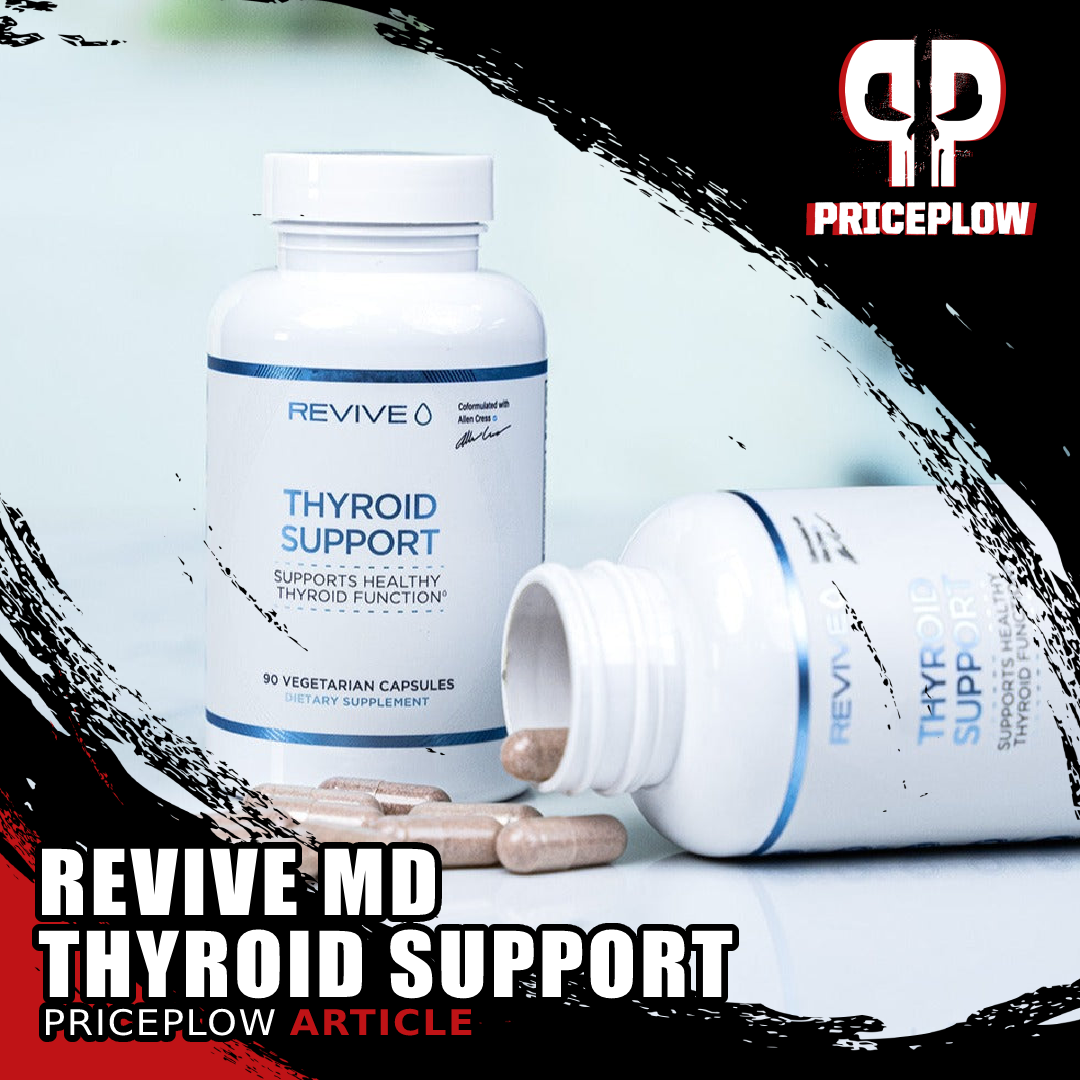
Revive MD Thyroid Support is here to help your body maintain healthy thyroid hormone levels, supporting the natural production of thyroid hormones
There's one organ/gland, however, that they hadn't yet approached entering into spring 2022, and it's one that's critically important to the body's metabolism: the thyroid. If you're looking to maintain healthy thyroid hormone levels and a solid metabolic rate, then this is one worth investigating:
Introducing Revive MD Thyroid Support
When it comes to choosing a supplement that will help relieve symptoms of poor-functioning thyroid, there are two questions you want an answer to:
- Does it treat the underlying cause? (i.e. Will it improve thyroid function?)
- Does it treat the symptoms associated with an underperforming thyroid gland?
As we discuss in our analysis of Revive MD Thyroid Support, most of the ingredients in this formula do both. Let's check prices powered by PricePlow, and then get into the weeds. The article below is complex, just like the gland itself:
Revive MD Thyroid Support – Deals and Price Drop Alerts
Get Price Alerts
No spam, no scams.
Disclosure: PricePlow relies on pricing from stores with which we have a business relationship. We work hard to keep pricing current, but you may find a better offer.
Posts are sponsored in part by the retailers and/or brands listed on this page.
This area is reserved for Team PricePlow's upcoming Ingredients video.
Subscribe to our channel and sign up for notifications so you catch it when it goes live!
Revive MD Thyroid Support Ingredients
In a single 3-capsule serving of Thyroid Support from Revive MD, you get the following:
-
Iodine (as potassium iodide) – 100 mcg (67% DV)
If you're suffering from poor thyroid function, you should definitely consider the simple possibility that you have an iodine deficiency. Adequate iodine intake is absolutely essential for optimal thyroid and hormone health, and in recent years, iodine deficiency has been on the rise for a variety of frustrating reasons.[1]
Iodine displacement is everywhere
For one thing, bread dough used to be fortified with iodine (via iodate in bread conditioners[2]), but manufacturers began adding bromine (via bromate) instead.[3] Also, for decades, most salt manufactured and sold in the United States had been iodized, until recent years when consumers started developing a preference for sea salt and trendy pink Himalayan salts instead — two types of salt that don't naturally contain, nor are they fortified with, iodine.
So, on average, iodine consumption has also been decreasing. On top of that, we're consuming a lot of halogen elements, like fluoride, chlorine, and bromine: water is fluoridated in most U.S. municipalities as a matter of [quite questionable] public dental policy, and chlorine has long been used to disinfect treated water to make it safe to drink.
The problem with these halogens is that they displace iodine, a fellow halogen element, from its proper place in the thyroid gland, thus blocking the action of iodine and creating a functional thyroid "deficiency" even if there's plenty of iodine in the body that could theoretically be used by the thyroid.
Long story short: all of this (and more) is why iodine deficiency is making a comeback in the United States,[1] and many of our metabolic woes could be as simple as ingesting more iodine and filtering our drinking water with reverse osmosis methods.
Iodine's Role in the Thyroid Gland
The two basic thyroid hormones are thyroxine (T4) and triiodothyronine (T3). The active hormone, the one with thyroid-like effects on the body at large, is T3. The precursor hormone, T4, is inactive until it's converted into T3 by a process that involves tyrosine, another ingredient in Revive MD's Thyroid Support formula.
Thyroid hormone synthesis involves iodination, which can't happen if you don't have any iodine! Image courtesy Wikimedia Commons, original credits Häggström, Mikael (2014).
Levels of T3 are strongly linked to heart, brain, and gastrointestinal health.[4] It also determines your basal metabolic rate,[4] the rate at which your body burns calories for energy.
If you don't have enough T3, you're far more likely to develop hypothyroidism, which, among other symptoms, slows metabolism and eventually can cause significant weight gain.[5]
But that's not all. An underactive thyroid raises your risk for other serious diseases, including type 2 diabetes[6] and hyperhomocysteinemia,[7] a condition where elevated levels of the amino acid homocysteine in the blood can cause vascular issues.
Other symptoms of iodine-deficiency-induced hypothyroidism can include:
- Chronic fatigue and weakness[8]
- Cold intolerance; feeling cold all the time[9]
- Low levels of brown fat, a metabolically active "good" type of body fat[10]
- Reduced heart rate (bradycardia)[11]
- Smaller and less active hippocampus, the region of the brain that coordinates learning and memory[12]
But you may not want to get too much!
It is possible to get too much iodine, but the numbers are quite high if you look at Japanese data (there's a lot of iodine in the seaweed they eat).[2] However, to keep things within RDA limits, Revive MD Thyroid Support has about two-thirds of the recommended daily intake: this should be enough to prevent deficiency without putting you at risk of excessive iodine intake, which can cause hyperthyroidism and other thyroid problems. Also, be mindful of your iodine intake from all sources. Experts suggest staying under the recommended upper limit of 150 micrograms of iodine per day due to some corner cases.[13]
-
Selenium (as L-Selenomethionine) – 200 mcg (364% DV)
Almost as important as iodine for thyroid health is selenium. The human thyroid gland actually has the highest tissue concentration of selenium of any gland or organ in the body,[14] and the deiodinase enzymes, which contain and require selenium to function, are responsible for converting T4 into T3.[14]
Since T3 is the active thyroid hormone, a selenium deficiency could be pretty catastrophic for your thyroid function.
As a powerful antioxidant compound, selenium can also protect the thyroid gland from oxidative stress and even reduce the burden of antibodies in Hashimoto's disease, an autoimmune condition caused when the body attacks its own thyroid gland and causes hypothyroidism.[14]
-
Vitamin A (as beta-carotene) – 750 mcg (83% DV)
A deficiency in vitamin A can interfere with the thyroid's ability to absorb iodine.[15] Moreover, the combination of vitamin A deficiency with iodine deficiency can produce an even more severe case of hypothyroidism than an iodine deficiency alone.[15]
In one study, children with an iodine deficiency were analyzed for vitamin A status. The researchers found that the more deficient a child was in vitamin A, the larger that child's thyroid gland was, and the higher his or her level of thyroid-stimulating hormone (TSH),[16] both of which reliably indicate thyroid dysfunction. Kids treated with iodine and vitamin A did better than kids who got iodine alone.[16]
But even the thyroid glands of healthy people might benefit from vitamin A. In one study where premenopausal women took a vitamin A supplement, they showed higher T3 levels and lower T4 levels, indicating that more of their T4 was being converted to the active form (T3) as a result of supplementation.[17]
Although beta-carotene is actually more of a vitamin A precursor, and not quite as bioavailable as the active form — retinol[18] — supplementing with this compound should still help prevent severe deficiency.
-
Nigella sativa Seed Extract (as Nigellin) – 500 mg
We've written about black seed oil, but only in the context of weight loss supplementation. And when it comes to weight loss, black seed oil is a powerful appetite regulator. Taking it can lead to significant reductions in food consumption and weight, in both animal and human models.[19,20] In one animal model, supplementation with black seed oil caused a 25% reduction in food intake.[19]
The human thyroid gland (colored in tan). In red are the arteries supplying the gland. Image courtesy Wikimedia
When it comes to thyroid function, one may initially make the assumption that appetite reduction is a bad thing, since calorie deficits are strongly associated with the downregulation of thyroid function. For instance, in one study where volunteers ate a 1,200-calorie diet, active thyroid hormone levels dropped by about 50%,[21] which is pretty catastrophic for anyone with a thyroid gland that's already underactive.
What's amazing about black seed oil is that you apparently get to have your cake and eat it too: In patients with Hashimoto's disease, black seed oil actually increases thyroid function, lowering thyroid-stimulating hormone (TSH) by about 35% and increasing triiodothyronine (T3) levels by about 10%.[22]
In need of more help in the fight against insulin resistnace? Revive MD offers one of the most potent glucose disposal agents available -- Revive MD Glucose!
Given that black seed oil is a powerful anti-oxidant and anti-inflammatory compound, and thyroid dysfunction in Hashimoto's is driven largely by inflammation and oxidation, it's possible that these benefits wouldn't apply to healthy people, or those with a different type of thyroid disorder.
But there is evidence in animal models that black seed oil can provide some benefit, even in the absence of autoimmune disorders. Researchers who gave a Nigella sativa extract to diabetic rabbits noted that it similarly upregulated the animals' thyroid function.[23]
Black Seed Oil and Insulin Resistance
One of the most significant complications that often accompanies hypothyroidism is insulin resistance,[24] which is associated with all kinds of terrible illnesses, from cardiovascular disease to cancer.[25] It's something that should be treated and corrected ASAP – especially since insulin resistance also causes weight gain over time[26] and is one of the most distressing aspects of hypothyroidism for many who suffer from it.
In animal models, black seed oil has been shown to help protect pancreatic beta cells (the insulin-secreting cells) from the destruction that's typically caused by hyperinsulinemia.[27] It's also known to improve fat and carbohydrate-metabolism in diabetic animals.[28]
In summary, more research on the topic is needed, but in the meantime, we're highly interested in black seed oil. As always, talk to your doctor about considering it for thyroid support - the data looks very promising.
-
L-Tyrosine – 200 mg
The amino acid tyrosine can help increase thyroid function[29,30] because it's a precursor to T3 and T4 thyroid hormones.[30] If you've gained some extra pounds as a result of thyroid slow-down, and are trying to get them off through diet and exercise, tyrosine can be particularly beneficial because it may help combat anti-thyroid effects that are typically associated with dieting.[31,32]
Long story short: No iodine or tyrosine, no thyroid hormone synthesis. Get enough iodine and tyrosine in!!
Tyrosine can also help improve energy levels (another area where thyroid dysfunction can negatively impact your life) because it's also a precursor to dopamine,[33] adrenaline, and noradrenaline[34,35] -- three neurotransmitters that significantly increase perceived and actual levels of energy when their concentration in the brain goes up.
Additionally, if you're suffering from the insomnia that often comes with poor thyroid function,[36] tyrosine can help you get through your day. Compared to caffeine, tyrosine is actually better at managing fatigue in people with acute sleep deprivation.[37,38]
-
Ashwagandha Root Extract (as KSM-66) – 200 mg
The ashwagandha root is renowned for its adaptogenic properties: its ability to normalize a variety of biological functions in the human body. For example, when it comes to stress and cortisol production — the body's primary stress hormone — ashwagandha has been shown to raise cortisol production when it's abnormally low[39] yet lower production when it's too high.[40]
Ashwagandha may have powerful effects on the thyroid gland as well. In a double-blind, randomized, placebo-controlled study, ashwagandha root extract raised thyroid hormone levels to normal levels in subclinical hypothyroidism patients.[41]
However, the dose used in the study was 600 milligrams of this same ingredient here (KSM-66),[41] whereas Revive MD Thyroid Support only contains 200 milligrams. So we can hopefully expect some effects, but likely not to the degree of that study with this ingredient alone. Thankfully, Revive MD Ashwagandha can get you to a full clinical dose in one capsule, so read our article linked there for even more information.
Additionally, there's some research in animal models that corroborate ashwagandha's ability to improve thyroid status: In at least one study, mice who were given ashwagandha root extract showed increased levels of T3 and T4 after treatment.[42]
But to defend the 200 milligram dose, we have a case study showing that large doses could be too much. Ashwagandha might be so good at increasing thyroid function that it can potentially turn hypothroid people hyperthyroid, as happened with one 73-year-old woman who took ashwagandha for two years.[43] Fortunately for her, the overproduction of thyroid hormone ceased when she stopped taking the supplement, which is unfortunately not listed and the dose is unknown.
Although more research is needed to establish that ashwagandha can directly improve thyroid function, the preliminary results are promising. And it's tough to dispute that ashwagandha supplementation can help normalize cortisol production,[39,40] which is typically deranged and excessive in thyroid disease.[44]
Because high cortisol is associated with insomnia,[45] fatigue,[46] and unwanted weight gain,[47] anyone who wants to manage the symptoms of their thyroid condition may want to consider ashwagandha supplementation.
-
Guggul Gum Extract (2.5% guggulsterone) – 150 mg
Guggul gum is a truly obscure ingredient, and its inclusion in this formula shows how committed ReviveMD is to designing an optimal thyroid supplement. It helps the thyroid take up iodine,[48] which as pretty much anyone who's familiar with the thyroid knows is absolutely essential for optimal thyroid health.
In animal models, supplementation with guggulsterone has repeatedly produced improvements in thyroid function.[49,50]
-
Rhodiola rosea Root Extract (1% rosavins) – 150 mg
The first ingredient in this stack without direct effects on the thyroid gland, Rhodiola rosea is an adaptogen similar to ashwagandha.
Rhodiola: Our favorite feel-good herb with some additional cortisol-reducing properties. Image courtesy Wikimedia
Rhodiola has been used for thousands of years in traditional medicine to boost mood, increase energy, and extend life.[51] Its main bioactive constituents are salidroside and rosavin.
Research on Rhodiola has largely validated the traditional beliefs about its efficacy, finding that it can improve cognition by facilitating long-term potentiation (the process by which short-term memories are consolidated),[52] promote cellular function,[53] and increase catecholamine production.[54-57]
In a double-blind, randomized, placebo-controlled study from the year 2000, researchers gave college students a Rhodiola extract while they prepared for final exams. Compared to the placebo group, Rhodiola had a significantly better effect on cognitive function, mental sharpness, and general sense of wellness.[58]
A similar study in 2004 corroborated this result, finding that stressed-out college students experienced a similar boost in mental performance after taking Rhodiola.[59]
Rhodiola and thyroid?
While Rhodiola's use for thyroid care is more speculative, there's a 2010 article titled "Exploring new applications for Rhodiola rosea: can we improve the quality of life of patients with short-term hypothyroidism induced by hormone withdrawal?" that's worth researching.[60] It argues that Rhodiola is a viable alternative treatment for short-term hypothyroidism caused by hormone withdrawal treatments.
For us, at least part of Rhodiola's anti-stress effect can be explained by its ability to blunt the increase in cortisol production that typically occurs in response to stress,[61] which is important for people with thyroid disease since cortisol is typically upregulated in those cases.[62]
-
Coleus forskohlii Root Extract – 100 mg
While usually marketed for its anti-obesity and testosterone-boosting effects, forskolin happens to be a potent protector and upregulator of the thyroid as well. Supplementation with forskolin in animals produces marked increases in both T3 and T4,[63] probably because forskolin helps the thyroid use iodine,[64] which is the master mineral of the thyroid system.
As is usual for this formula, forskolin may also help with the low-energy symptoms. It can help fight fatigue and the metabolic derangement typically associated with thyroid diseases by activating cyclic adenosine monophosphate (cAMP), which increases the rate at which the body burns fat for energy[65] and, over time, can improve body composition, blood lipids, and insulin sensitivity.[66]
Forskolin can also help reduce appetite,[67,68] which is important for anyone who's trying to lose weight gained as a result of a poorly-functioning thyroid.
-
Bovine Thyroid Glandular Powder – 100 mg
As its name suggests, bovine thyroid glandular powder is just the desiccated and pulverized thyroid gland of a cow.
Because the actual thyroid gland of an animal contains thyroid hormones and their precursors, supplementing with this gland (or eating it, as people traditionally have for thousands upon thousands of years) can raise their thyroid hormone levels.
In fact, some research has indicated that supplemental thyroid gland may even be as effective as the synthetic preparations that are the first-line treatment for thyroid disease.[69,70]
In one study where hypothyroid patients were switched from a T4 supplement to desiccated thyroid extract, nearly half (48.6%) expressed a preference for the desiccated version.[69] These patients also experienced a modest degree of fat loss (averaging 4 pounds) over the 16 week period.[69]
-
Bovine Pituitary Glandular Powder – 20 mg
The main reason ReviveMD included bovine pituitary powder in Thyroid Support is to complement the hormones contained in the thyroid glandular powder – because the pituitary and the thyroid are both part of the same endocrine axis, the hypothalamic-pituitary-thyroid axis, consuming the glands together, in the correct proportion, can help achieve a more balanced effect than consuming thyroid alone. This is the basic principle behind "tip-to-tail" animal nutrition, so we're glad to see it followed here.
As an interesting side note, although it's probably not directly relevant to thyroid health, bovine pituitary supplementation does seem to have some positive systemic effects. For example, it has been shown to protect the prostate gland from oxidative stress.[71]
Most of us would probably not have guessed that – I certainly wouldn't have – and it just goes to show that when it comes to endocrinology, you can't assume that anything is obvious. Second, third, and even fourth-order effects are the name of the game. And the precautionary principle should always be followed whenever you're intervening in an endocrinological system.
In other words, it's pretty smart of Revive MD to balance thyroid supplementation by including this pituitary powder.
-
Other Ingredients
Besides the ingredients analyzed above, Revive MD also included some extra vitamins and minerals that are often deficient in hypothyroid states:
- Magnesium (as Trimagnesium Citrate): 50 mg (12% DV)
- Manganese[72] (as Manganese Bisglycinate Chelate): 1 mg (43% DV)
- Riboflavin (vitamin B2): 0.2 mg (15% DV)
- Vitamin B12[73] (cyanocobalamin): 5 mcg (208% DV)
- Zinc (as Zinc Citrate Dihydrate): 1 mg (9% DV)
Specifically, hypothyroidism significantly raises the risk of B12 deficiency,[73] so it's good to see a large-ish dose included here (though, truthfully, we'd prefer seeing methylcobalamin, the methylated form of B12).
Dosage and Instructions
Take three capsules per day (taken at once or split throughout), with or without food.
Blood work is key (this is why Revive MD can help with blood work too). Speak to your primary doctor if you're on medication, and decide if this could interfere or force adjustments to your medicine.
Conclusion: Keep the thyroid operating at an optimal rate
On the research side, Revive MD dove deep into the subject of optimizing thyroid function, deeper than we've ever seen a manufacturer do before. However, this 9.5/10 formula would be perfect if they just opted for the most bioavailable forms of vitamins B12 and A – methylcobalamin and retinol — rather than cyanocobalamin and beta-carotene.
With that said, we're extremely bullish on the inclusion of bovine thyroid gland powder, and love how it's paired with pituitary powder. This is going to be novel to the vast majority of users who've never tried such a supplement or haven't had organ meats (which generally aren't sold with these glands inside either).
And sometimes, it's as simple as getting enough iodine in and enabling its uptake, something Revive MD has here as well. This one's been a long time in the making, and now that it's out, we can see why the process took so long -- it's not a simple supplement, but it's a powerful one.
Get your blood work, monitor closely, and be at your best.
Revive MD Thyroid Support – Deals and Price Drop Alerts
Get Price Alerts
No spam, no scams.
Disclosure: PricePlow relies on pricing from stores with which we have a business relationship. We work hard to keep pricing current, but you may find a better offer.
Posts are sponsored in part by the retailers and/or brands listed on this page.
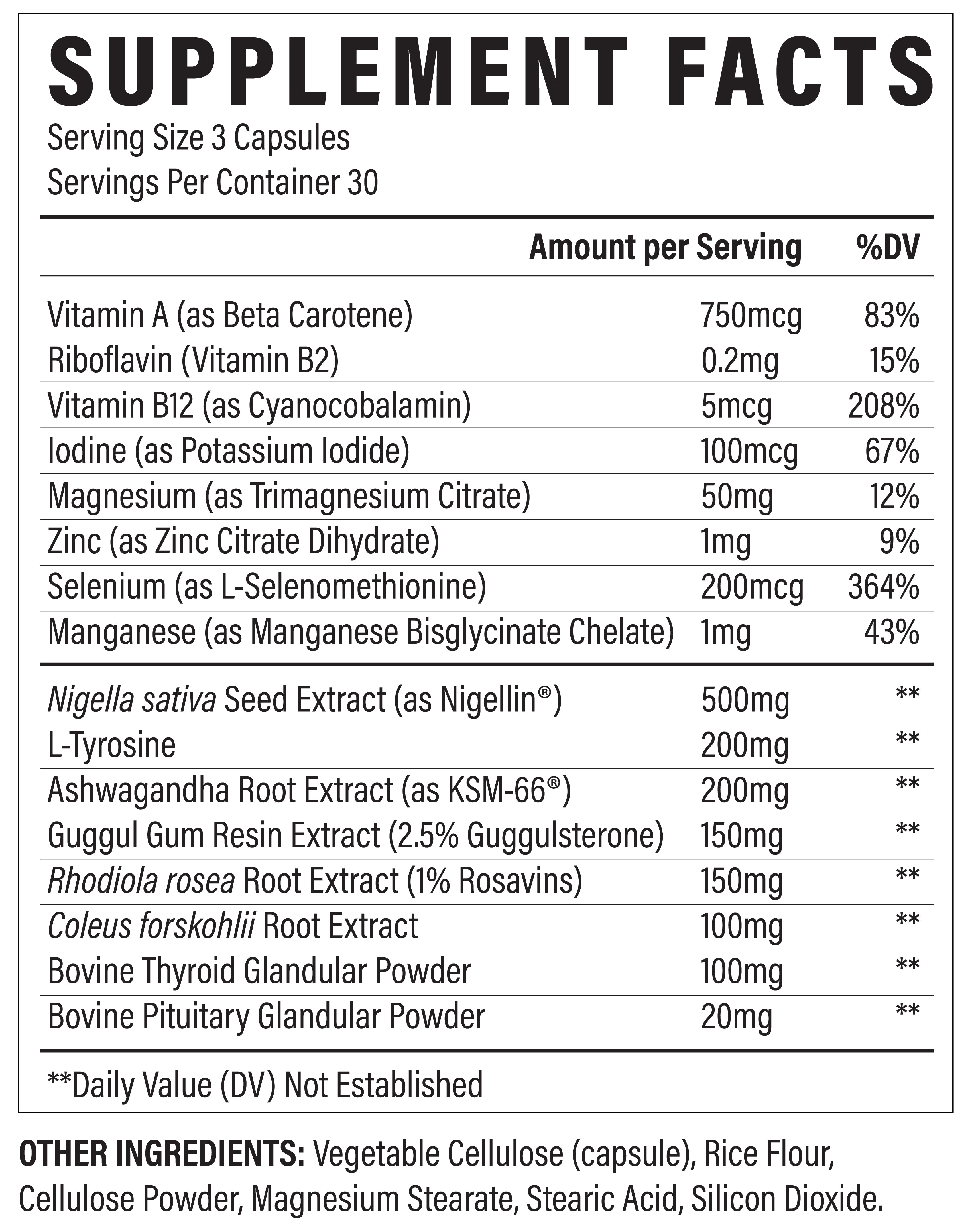
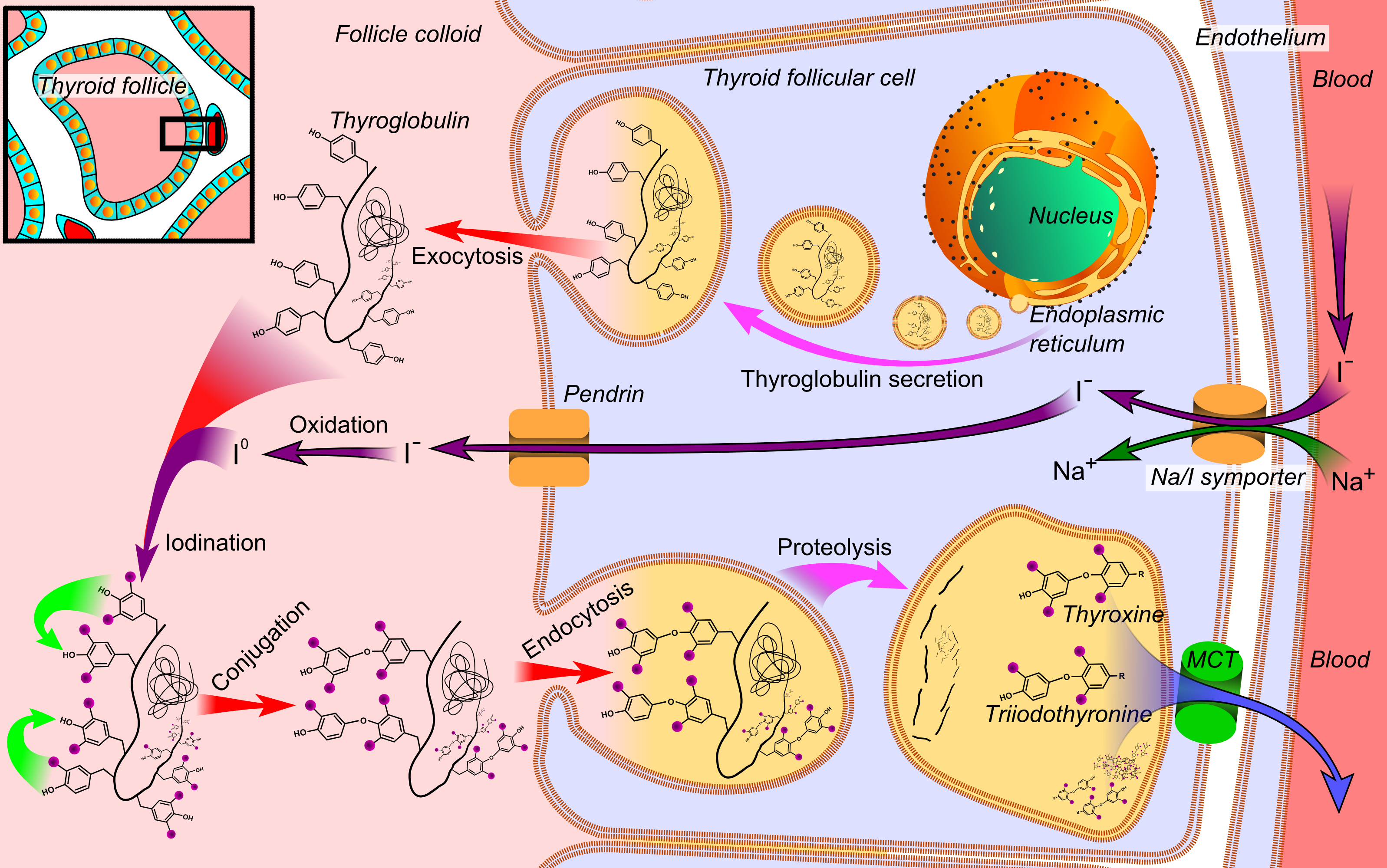
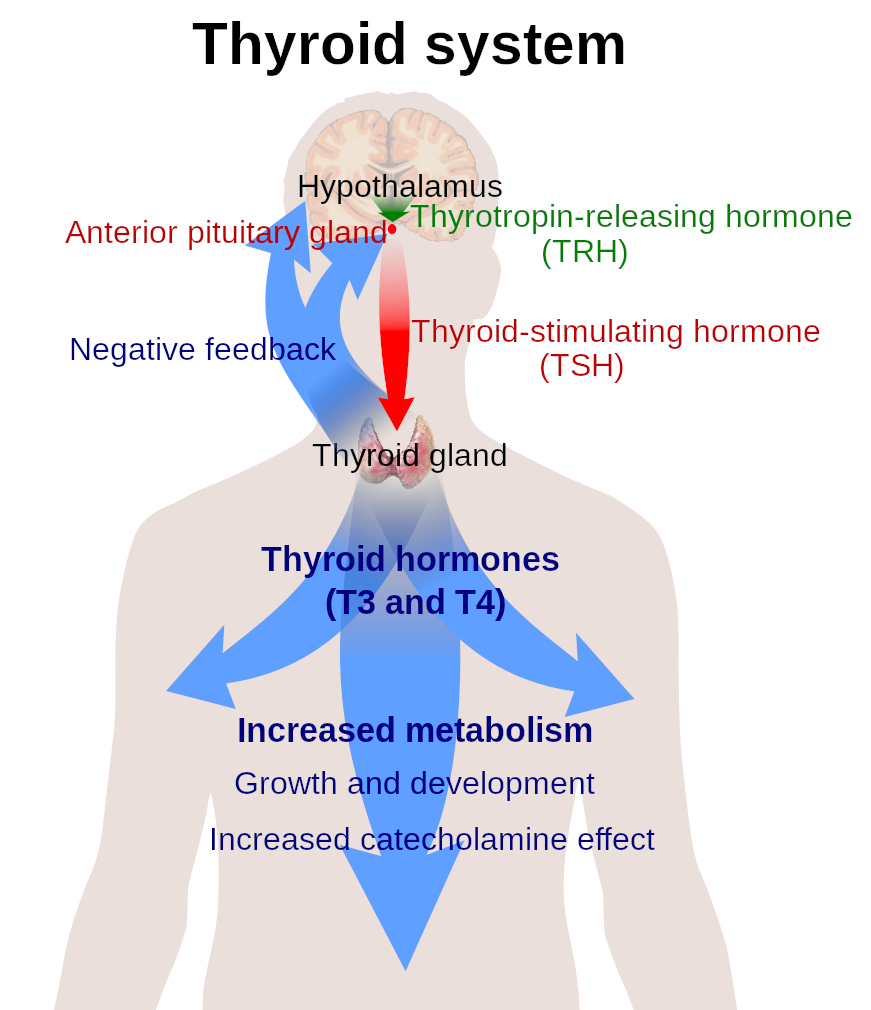
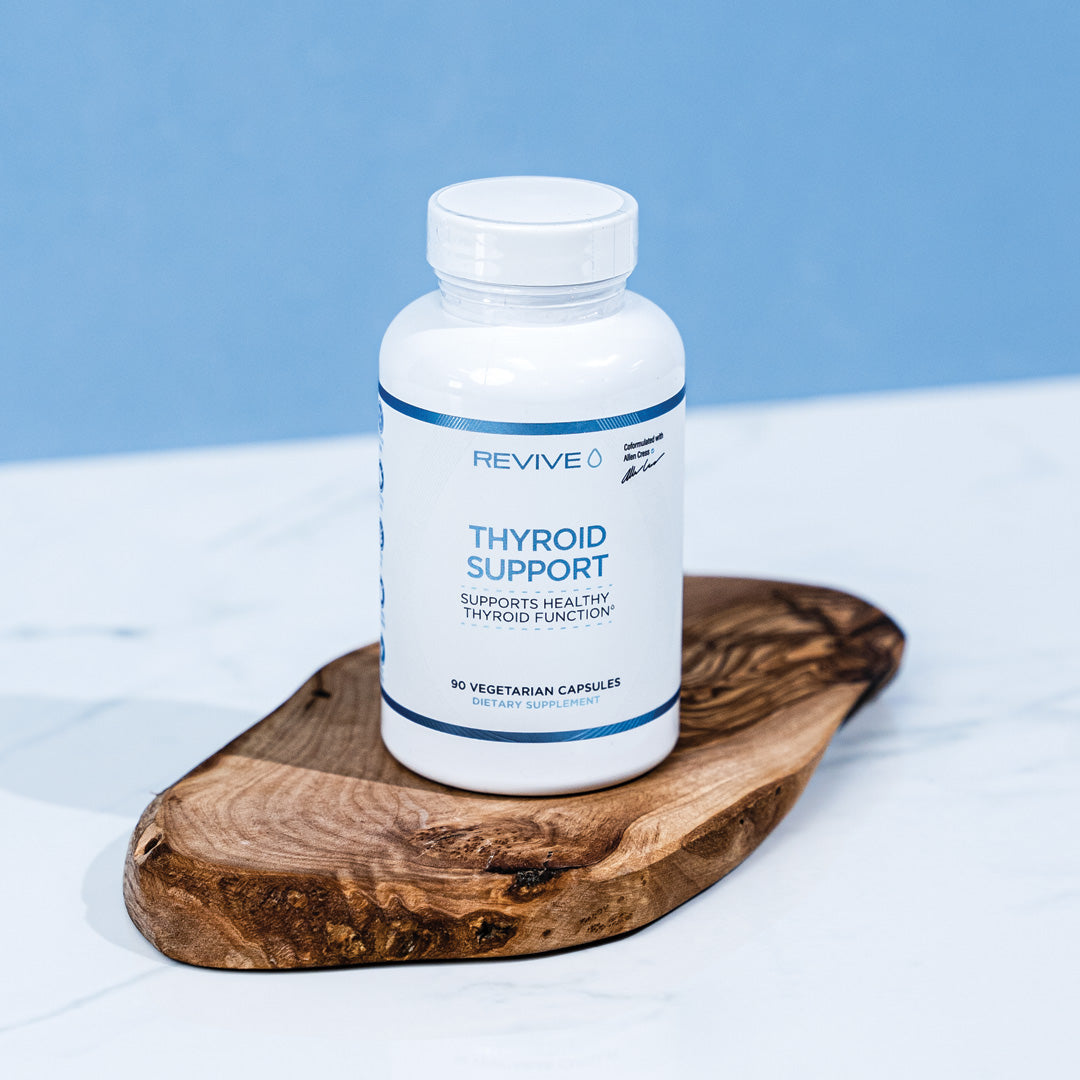

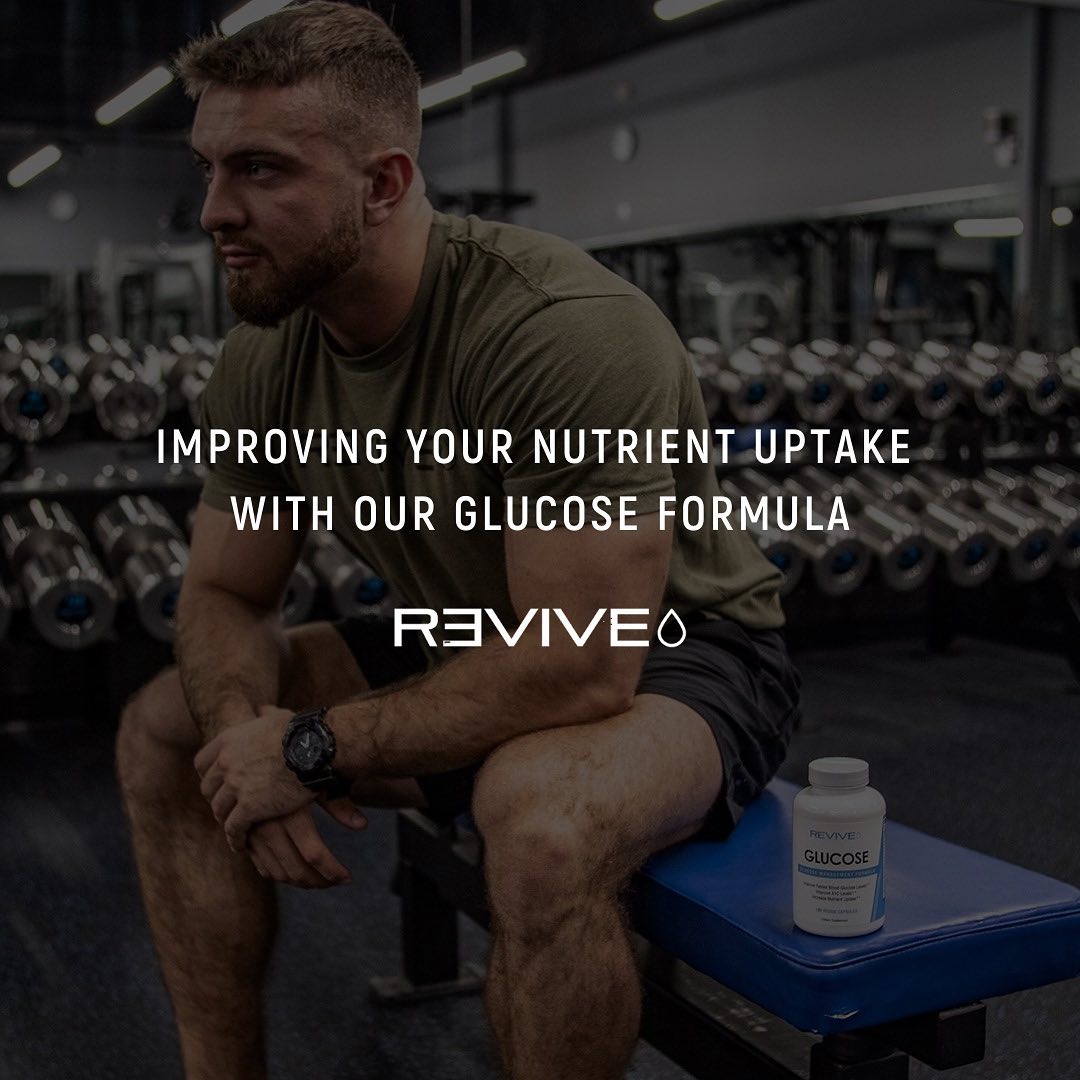
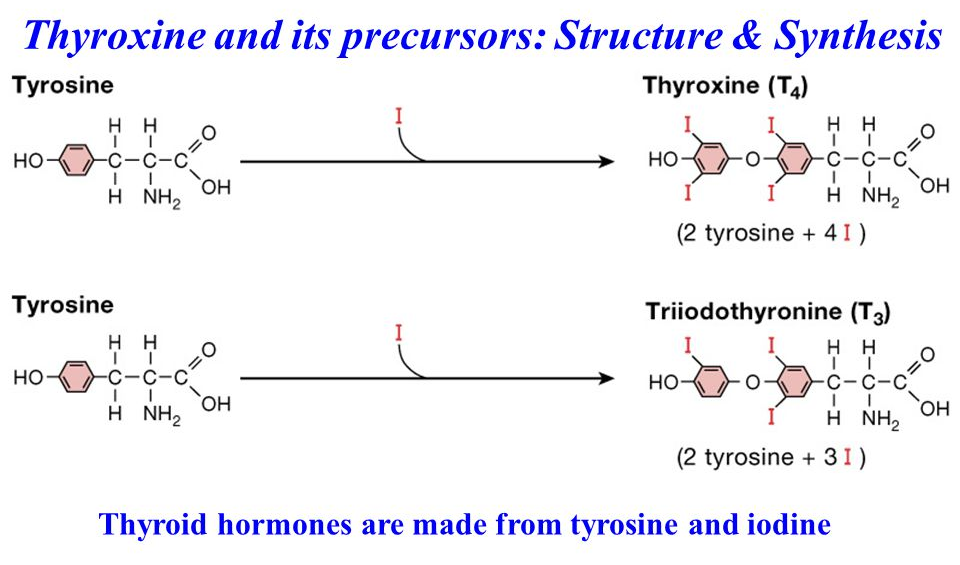
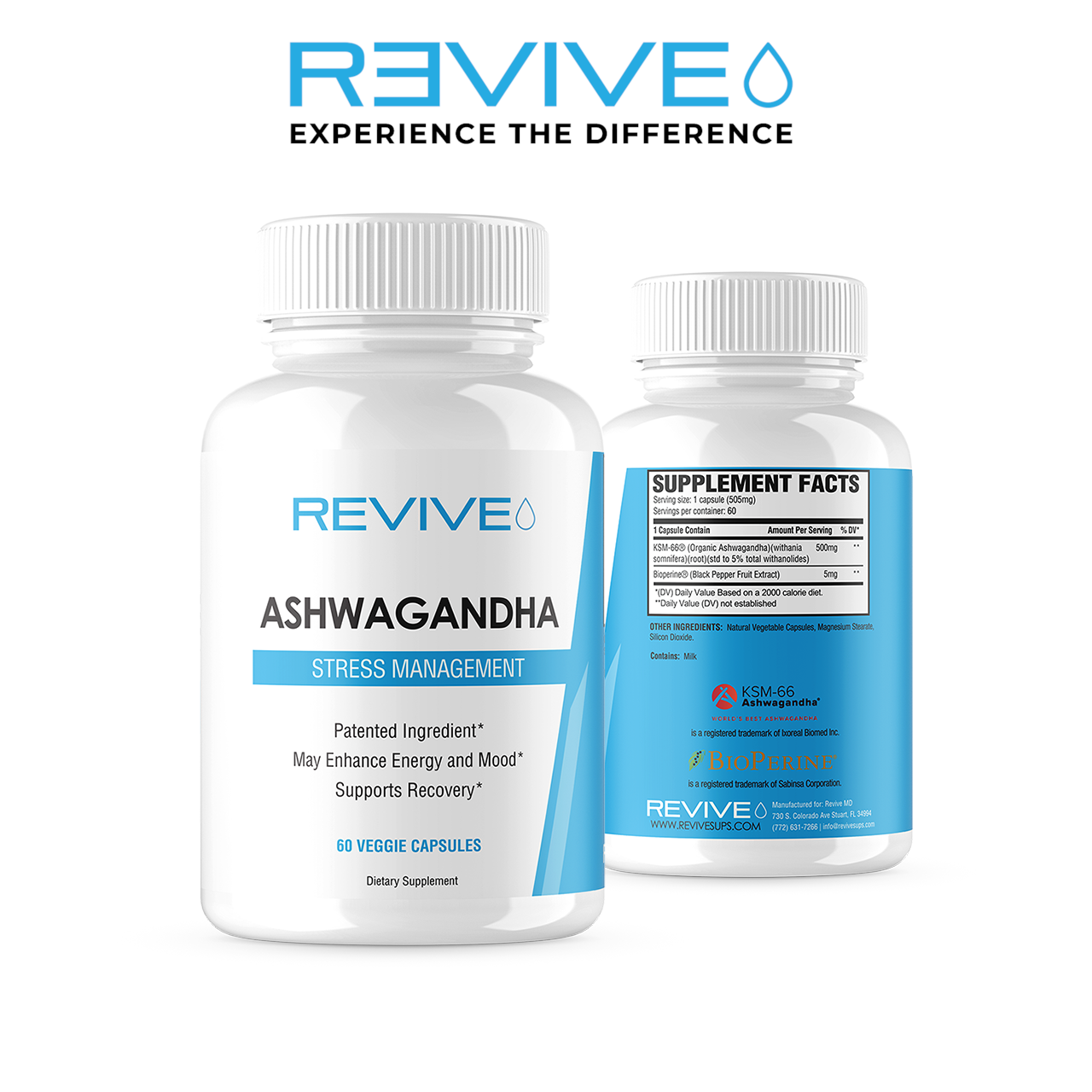
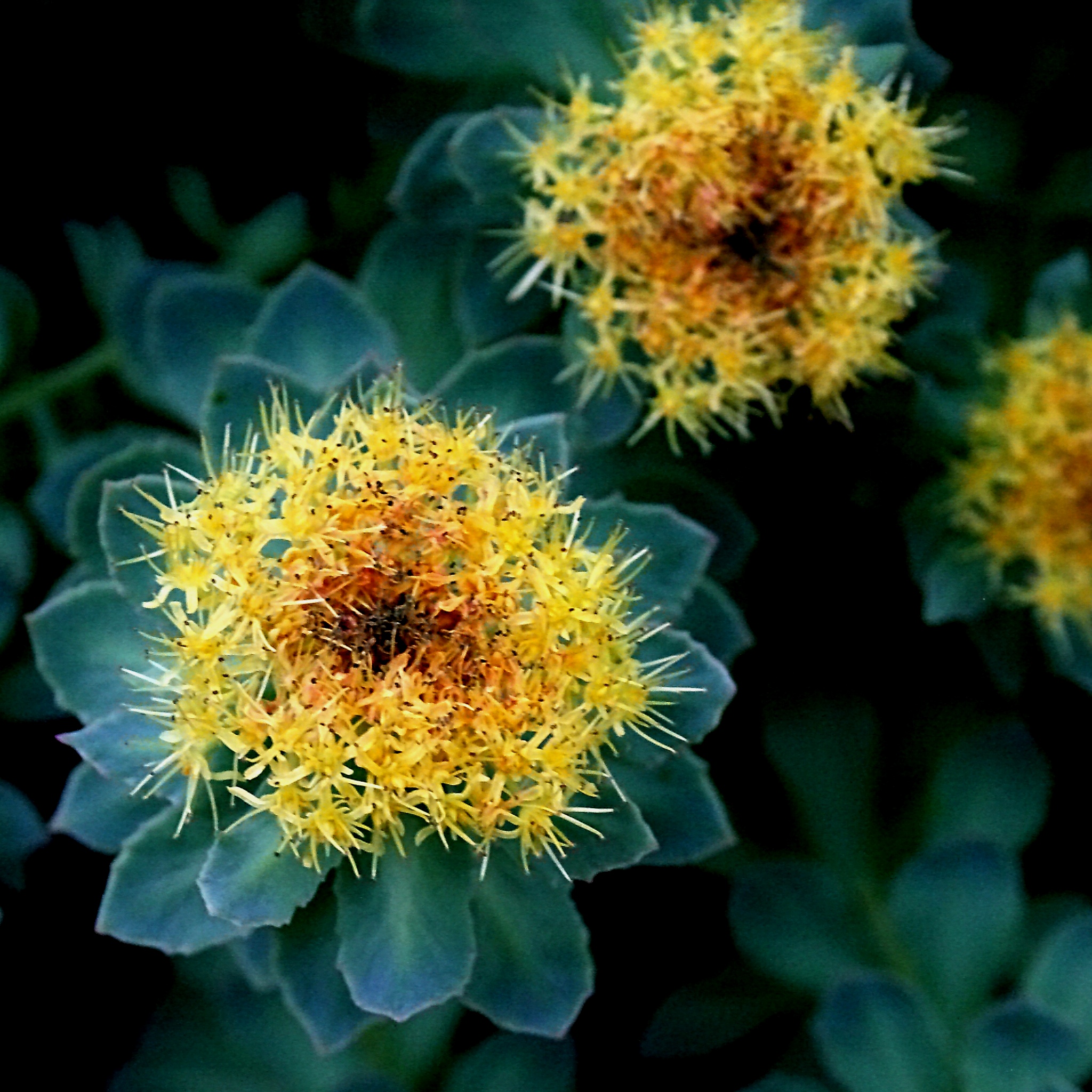
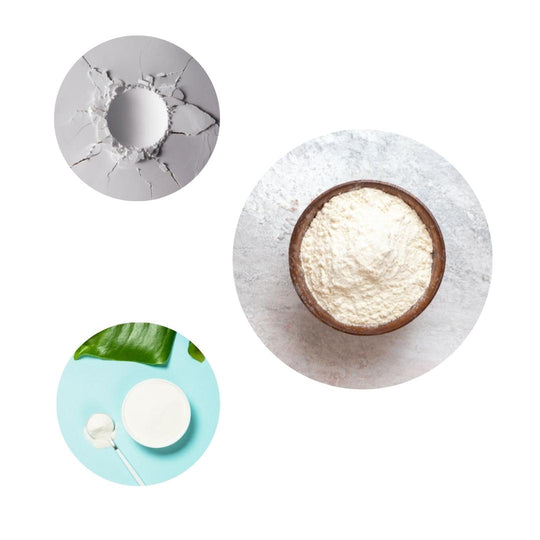
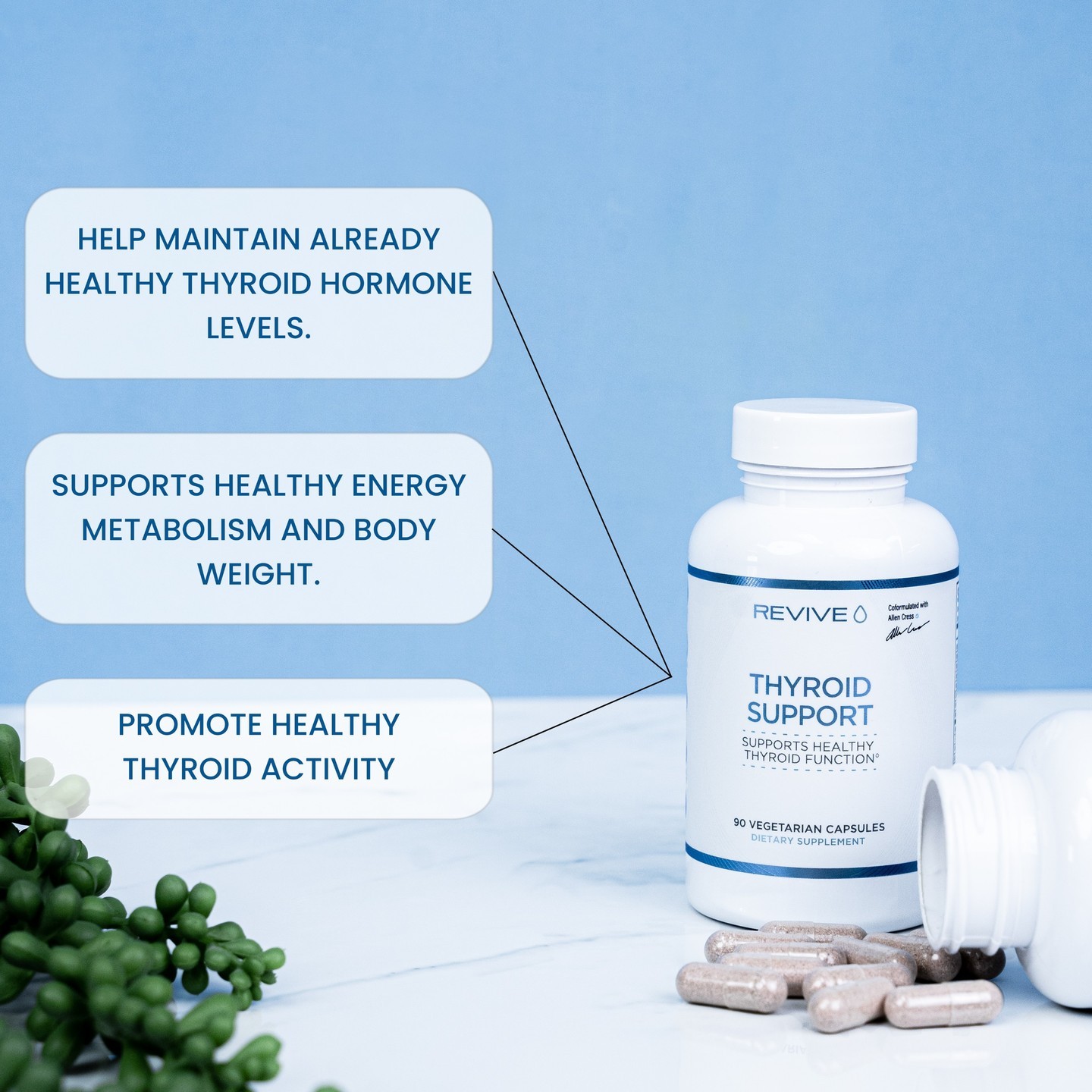


Comments and Discussion (Powered by the PricePlow Forum)